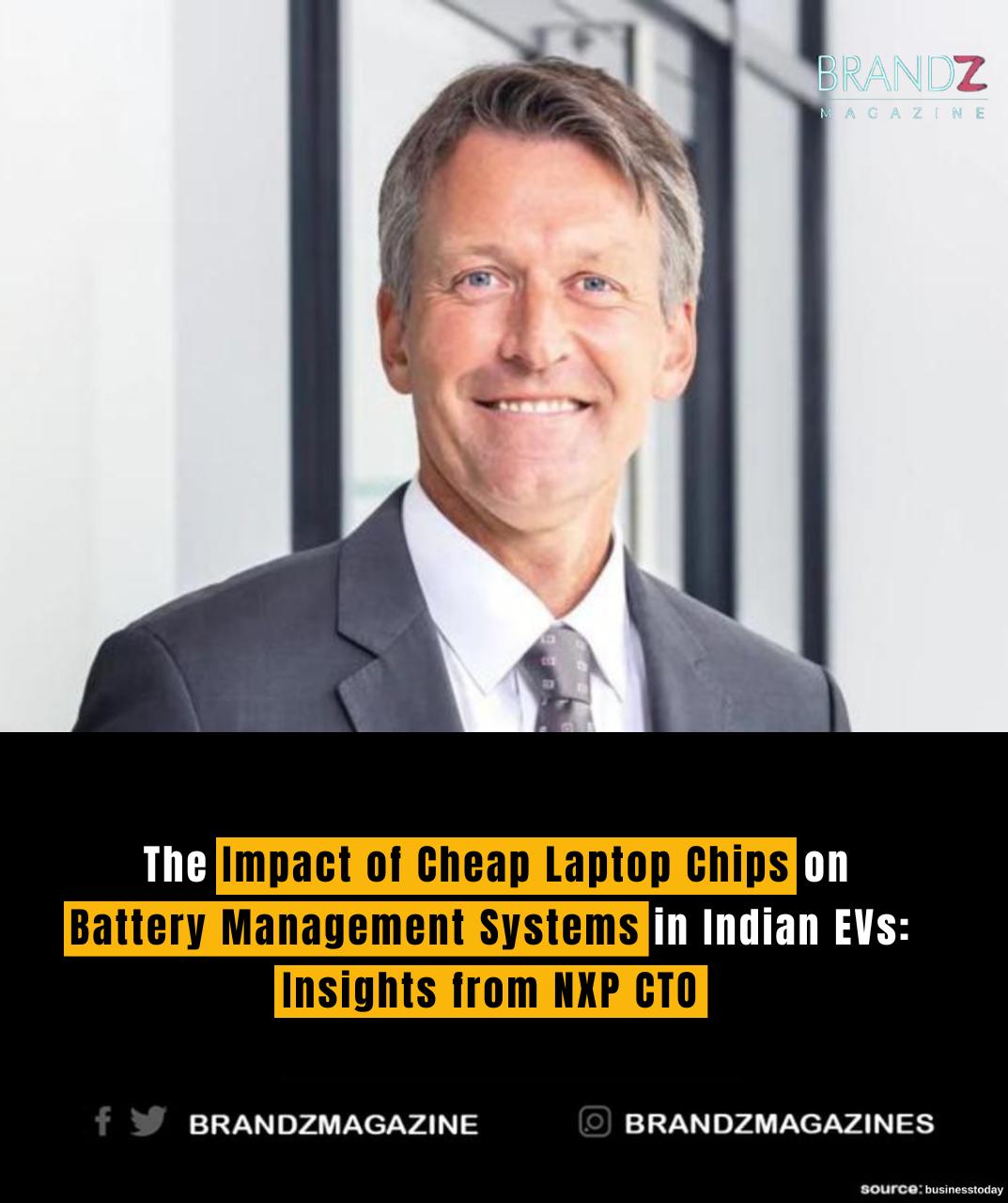
The rapid growth of the electric vehicle (EV) market in India has brought to light a concerning issue: the use of cheap laptop chips in battery management systems (BMS) that may pose a fire risk. This revelation comes from the Chief Technology Officer (CTO) of NXP Semiconductors, a leading provider of semiconductor solutions for automotive applications. The implications of this issue highlight the critical importance of quality components and robust safety measures in the EV ecosystem.
The adoption of electric vehicles in India has surged in recent years, driven by factors such as environmental consciousness, government incentives, and advancements in EV technology. However, the quality and reliability of components used in EVs, especially in critical systems like BMS, are paramount to ensuring the safety and performance of these vehicles.
The use of laptop chips in BMS, primarily due to cost considerations, has raised concerns regarding their suitability for the demanding and high-stakes environment of electric vehicles. Unlike specialized automotive-grade components designed to meet stringent safety and reliability standards, laptop chips may not possess the necessary durability, thermal management capabilities, and fail-safe mechanisms required for BMS in EVs.
The CTO of NXP Semiconductors has highlighted the potential risks associated with using substandard chips in BMS, including the risk of overheating, malfunctioning, and in extreme cases, fire incidents. The safety of EV occupants, as well as the protection of valuable assets such as battery packs, are paramount concerns that must be addressed through rigorous quality control measures and industry standards.
The issue of cheap laptop chips in BMS not only poses safety risks but also raises questions about the overall quality assurance processes in the EV supply chain. Ensuring the use of reliable, certified components from reputable suppliers is crucial for mitigating risks and building consumer confidence in EV technology.
Furthermore, the NXP CTO emphasizes the need for collaboration among industry stakeholders, including automakers, semiconductor manufacturers, regulatory bodies, and standards organizations, to establish guidelines, best practices, and quality benchmarks for components used in EVs.
Addressing the challenges posed by cheap laptop chips in BMS requires a multi-faceted approach that encompasses technological advancements, regulatory oversight, supply chain transparency, and consumer education. Automakers and component suppliers must prioritize safety, reliability, and performance to foster trust and credibility in the burgeoning EV market.
In response to these concerns, NXP Semiconductors and other industry leaders are advocating for the adoption of automotive-grade components, robust testing protocols, and continuous innovation in BMS technology to enhance safety, efficiency, and sustainability in electric vehicles.
As the EV industry continues to evolve and expand globally, addressing critical issues such as component quality, safety standards, and supply chain resilience becomes paramount. The insights shared by the NXP CTO serve as a reminder of the ongoing challenges and opportunities in advancing the electrification of transportation while ensuring the highest standards of safety and performance.

